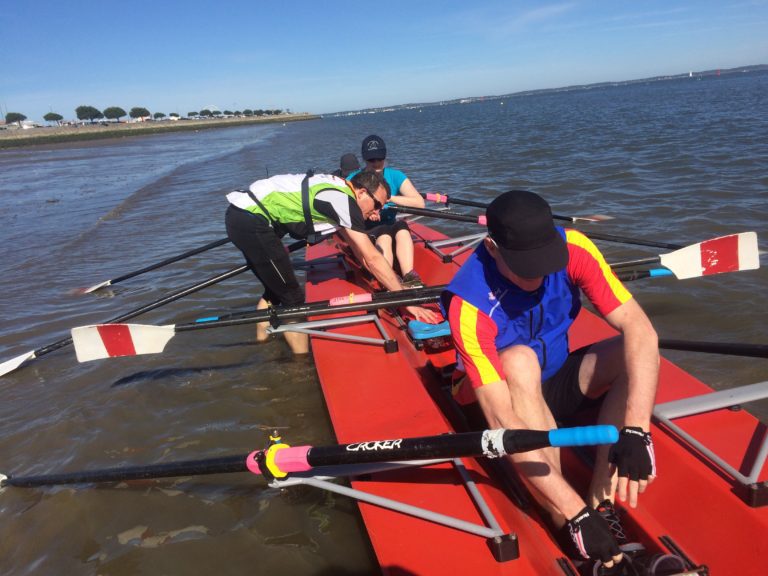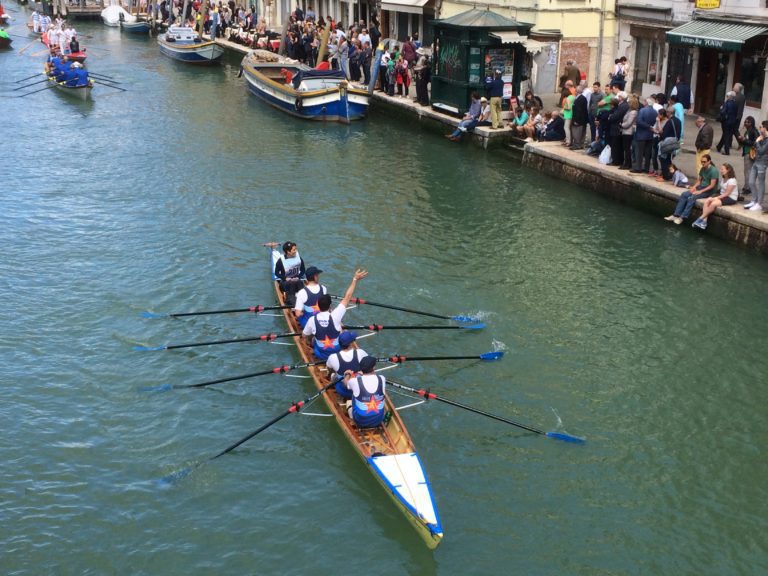The feet first approach
There’s a reason behind the well developed stereotype a rowing teams and sliders – your feet need it after all that time spent in the boat!
Whether it’s down to the stresses and strains [1] placed on your joints while you’re competing, the many hours spent with your feet in shared shoes during training, or the time spent wading in and out of the river which has doubtless left you damp on a number of occasions – you need to know how to keep you feet in good working order.

Choosing the Right Footwear
You’re almost definitely going to be required to wade out into the water at some point when training in the boat.
If you decided to go for wellies (gum boots), make sure you check them well for leaks before sliding your feet inside. There’s nothing worse than warm socks getting wet from inside the boots. Starting off the day with soggy socks is not the most pleasant thing!
In summer, flip-flops are a temptation, but they have their own set of issues. These slip-ons have a habit of folding over on themselves just as you’re walking down the ramp with an expensive boat on your shoulder. Plus the soles are not grippy if you walk on a pontoon dock which is wet or slimy wood.
The alternative – dare we say it – is to wear Crocs! Just don’t wear them out and about, these are strictly only permissible between the boathouse and the river! [2]
Strength & Conditioning for the Feet
The best way of doing this, in our opinion, is to use resistance bands. [3]
Fasten your resistance band to a secure point and place the other end around the top of your foot just below you toes. From a seated position with your leg straight out in front of you, create tension on the band through dorsiflexion. You can perform reps like this, flexing and extending your foot. It stretches out the aches and helps blood flow.
Roll Out Your Three Arches


That’s right, three.
Most people consider there to be one arch to each foot, but there’s actually three. [4] These are the lateral, transverse, and medial arches. All three arches work together to spring load your feet, giving you strength, balance and power that are all needed for rowing. Stretching out your feet in an effective manner is key to avoiding common strain injuries of the feet.
You are likely to feel the most pain when rolling out the transverse arch of your foot. Pain is often most noticeable as you get closer to the heel, so be careful not to over do it.
Taking Care of Your Skin
If your feet are in a continuous cycle of being damp, then dry, then wet again, it’s going to lead to some discomfort. Eczema, dry, cracked skin and even athletes foot can be common complaints amongst the rowing community.[5]
The key here to to do your research, and a little experimentation and invest in a foot cream that is right for you.
Ready to go rowing again? Remember to look after your feet!
Article: Courtesy rowperfect.co.uk
Bibliography
[1]Schepsis, Anthony A., Robert E. Leach, and J. Gorzyca. “Plantar fasciitis. Etiology, treatment, surgical results, and review of the literature.” Clinical Orthopaedics and Related Research 266 (1991): 185-196.
[2]Karlson, Kristine A. “Rowing injuries: identifying and treating musculoskeletal and nonmusculoskeletal conditions.” The Physician and sportsmedicine 28.4 (2000): 40-50.
[3]Hintermeister, Robert A., et al. “Electromyographic activity and applied load during shoulder rehabilitation exercises using elastic resistance.” The American Journal of Sports Medicine26.2 (1998): 210-220.
[4]Xiong, Shuping, et al. “Foot arch characterization: a review, a new metric, and a comparison.” Journal of the American Podiatric Medical Association 100.1 (2010): 14-24.
[5]Holden, C., et al. “Advised best practice for the use of emollients in eczema and other dry skin conditions.” Journal of Dermatological Treatment 13.3 (2002): 103-106.





